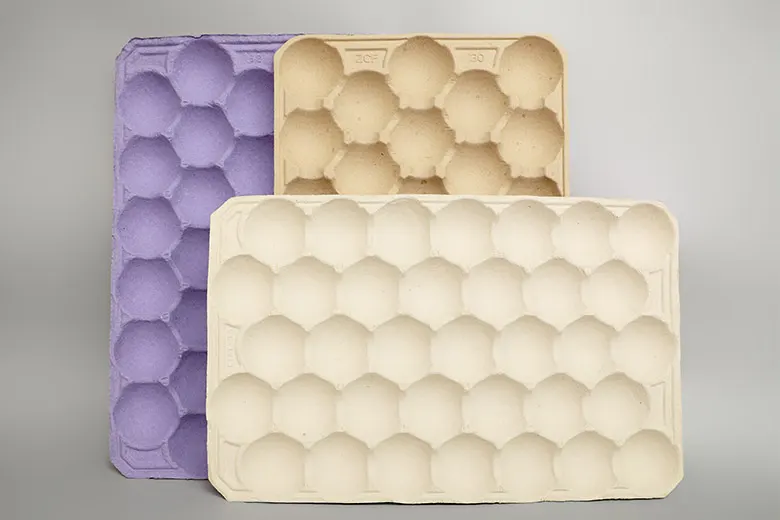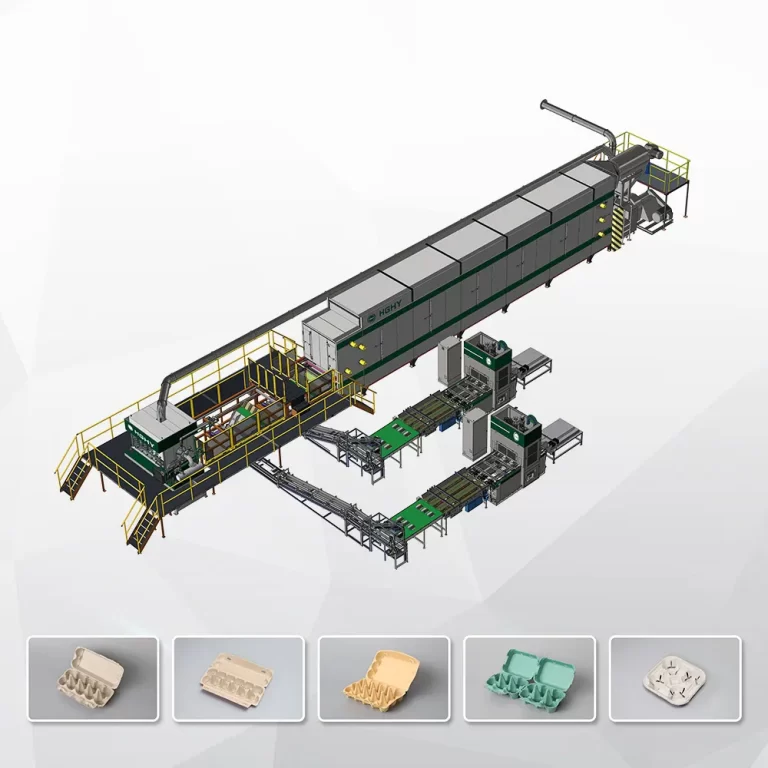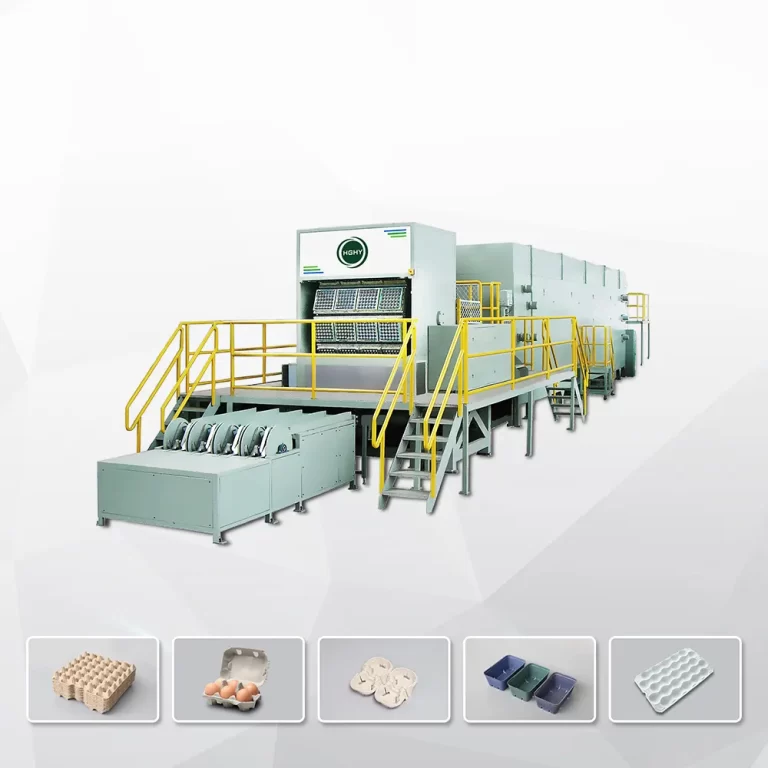In today’s global drive toward sustainability, the packaging industry is under pressure to adopt more eco-friendly solutions. One significant area of focus is the production of egg trays, where green manufacturing technologies can play a crucial role in reducing carbon emissions. This article explores how transitioning from traditional plastic trays to molded pulp egg trays and adopting cleaner production processes can make a meaningful environmental impact.

From Waste to Wealth: Recycling Paper for Pulp Molding
At the core of green egg tray production lies the use of recycled paper—such as old newspapers, cardboard, and office waste. These materials are broken down into pulp and formed into sturdy, biodegradable trays. By utilizing post-consumer waste, this process not only reduces landfill pressure but also minimizes the need for virgin paper, preserving natural forest resources. Compared to producing plastic trays from petroleum-based materials, paper pulp production has a significantly lower carbon footprint.
Molded Pulp vs. Plastic: A Sustainable Alternative
| Feature | Molded Pulp Egg Trays | Plastic Egg Trays |
|---|---|---|
| Raw Material | Recycled Paper | Petroleum-Based Plastic |
| Biodegradability | ✅ Yes | ❌ No |
| Recyclability | ♻️ 100% Recyclable | ♻️ Rarely Recyclable |
| Environmental Impact | Low (Natural Decomposition) | High (Non-degradable Waste) |
| Carbon Emission (Production) | Low | High |
Molded pulp trays can naturally degrade in the environment in just a few weeks, while plastic trays can persist for centuries, leaching microplastics and toxins into soil and water. Moreover, plastic manufacturing emits more greenhouse gases, contributing to global warming.
Eco-Friendly Manufacturing: Clean Energy & Water Reuse
Innovations in egg tray machinery further support sustainability. Newer technologies now use energy-efficient motors, closed-loop water systems, and heat recovery systems that significantly lower energy use and carbon emissions during drying and molding.
Some manufacturers have even adopted solar or biomass energy to power production lines, pushing the boundaries of green manufacturing.
Circular Economy: Reuse and Compostability
Unlike plastic trays, molded pulp egg trays support a circular economy. They can be reused for other purposes, composted at home, or recycled again into pulp, reducing the need for new raw materials. Their lifecycle ends without harming the planet—no microplastics, no pollution.
Government Policies and Consumer Demand
With increasing plastic bans and eco-conscious consumers, many businesses are switching to biodegradable packaging. Egg producers that embrace molded pulp solutions can align with global sustainability goals and gain market preference.
Conclusion
By adopting recycled materials, clean energy, and biodegradable designs, the egg tray manufacturing industry can significantly reduce its carbon footprint. Molded pulp trays not only meet environmental regulations but also offer a practical and sustainable solution that protects both the planet and the bottom line.



